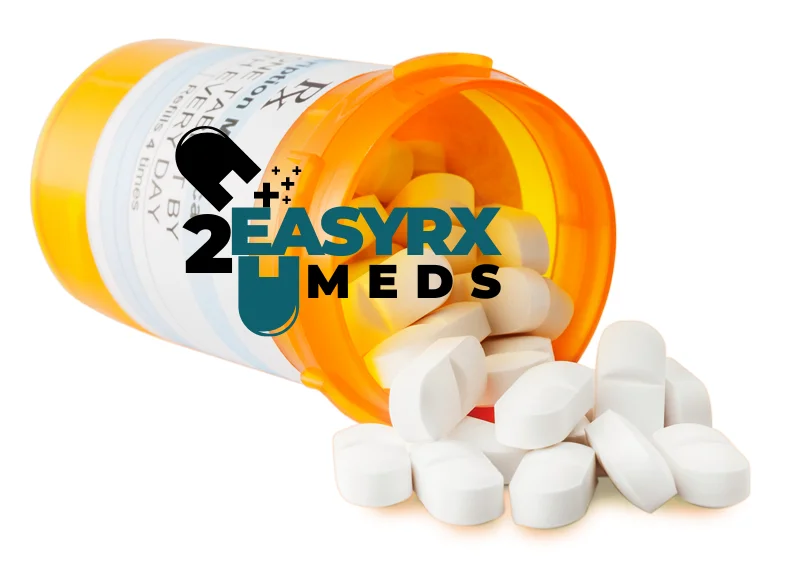There is no item in your cart
What do you know about Aleve PM?
Aleve PM dosage is an over-the-counter (OTC) medication designed to relieve pain and help with sleep. It combines two active ingredients:
- Naproxen sodium: A nonsteroidal anti-inflammatory drug (NSAID) that reduces pain, inflammation, and fever. It’s commonly used to treat conditions such as headaches, muscle aches, arthritis, and other types of pain.
- Diphenhydramine hydrochloride: An antihistamine commonly used as a sleep aid. It works by making you feel drowsy and is often found in other nighttime pain relievers or sleep aids.
Key Uses of Aleve PM:
- Pain relief: It helps alleviate aches and pains, including back pain, muscle pain, headaches, and arthritis-related discomfort.
- Nighttime sleep aid: Diphenhydramine helps individuals fall asleep more easily when pain keeps them awake.
Dosage and Precautions:
- The recommended dose is typically 2 caplets taken before bedtime.
- It is intended for short-term use, typically not more than 10 days, unless advised by a healthcare professional.
- People with certain medical conditions (like stomach ulcers, kidney disease, or cardiovascular issues) or those taking other medications should consult a doctor before use due to potential side effects or drug interactions.
- Common side effects may include drowsiness, dizziness, or gastrointestinal issues like stomach upset.
Benefits:
1. Dual Action for Pain Relief and Sleep
- Pain Relief: Naproxen sodium (NSAID) is effective at reducing pain and inflammation, helping to relieve discomfort from conditions like back pain, arthritis, and muscle aches. This can make it easier to rest comfortably.
- Sleep Aid: Diphenhydramine, an antihistamine, promotes drowsiness, helping individuals fall asleep faster and stay asleep longer, particularly when pain is a factor in preventing sleep.
2. Non-Habit Forming
- Aleve PM dosage is non-habit forming, meaning it doesn’t lead to dependence when used as directed, unlike some prescription sleep medications.
3. Long-Lasting Pain Relief
- The naproxen in Aleve PM dosage can provide pain relief for up to 12 hours, ensuring continued relief even after waking up.
4. Convenient for Nighttime Pain
- It is specifically designed for people whose pain interferes with their sleep, providing a combination of pain relief and sleep support in one medication.
5. Reduces the Need for Multiple Medications
- Instead of taking separate medications for pain and sleep, Aleve PM combines both functions, simplifying treatment.
6. Helps Improve Next-Day Functioning
- By improving sleep quality and relieving pain, Aleve PM dosage can help individuals feel more rested and less irritable the next day.
Side Effects:
1. Common Side Effects:
- Drowsiness: Diphenhydramine is a sedative antihistamine, which can cause drowsiness that may linger into the next day (morning grogginess or “hangover” effect).
- Dizziness: Some people may experience dizziness or lightheadedness.
- Dry Mouth: Diphenhydramine can cause dry mouth, a common side effect of antihistamines.
- Gastrointestinal Issues: Naproxen can irritate the stomach, potentially leading to nausea, heartburn, indigestion, or mild stomach pain.
2. Less Common Side Effects:
- Blurry Vision: Diphenhydramine may cause temporary blurred vision in some users.
- Constipation or Difficulty Urinating: Diphenhydramine may cause these issues, especially in older adults.
- Headaches: Though naproxen is meant to relieve headaches, in rare cases, it can cause headaches or worsen them.
3. Serious Side Effects (Less Common but Important to Monitor):
- Stomach Ulcers or Bleeding: Naproxen, like other NSAIDs, can cause stomach ulcers, gastrointestinal bleeding, or even perforation, especially when used long-term or in higher doses.
- Increased Risk of Heart Attack or Stroke: Long-term use of NSAIDs like naproxen can increase the risk of cardiovascular events, especially in people with pre-existing heart conditions or risk factors.
- Allergic Reactions: Some people may develop allergic reactions, which can cause symptoms like rash, itching, swelling (especially of the face or throat), severe dizziness, or trouble breathing.
- Kidney Issues: Prolonged use of naproxen can lead to kidney problems, especially in individuals who already have kidney disease.
- Liver Damage: Though rare, liver damage can occur with the prolonged use of naproxen.
4. Potential Drug Interactions:
- Other Medications: Aleve PM dosage may interact with blood thinners (e.g., warfarin), other NSAIDs, antidepressants, and certain blood pressure medications, increasing the risk of side effects.
- Alcohol: Combining Aleve PM with alcohol can heighten the risk of stomach bleeding and increase drowsiness or dizziness.
5. Risk Factors to Consider:
- Older Adults: The elderly are more susceptible to the side effects, particularly stomach bleeding, ulcers, dizziness, and confusion from diphenhydramine.
- Pre-existing Conditions: Those with a history of ulcers, kidney or liver disease, heart disease, asthma, or high blood pressure should consult a healthcare provider before using Aleve PM.


Reviews
There are no reviews yet.